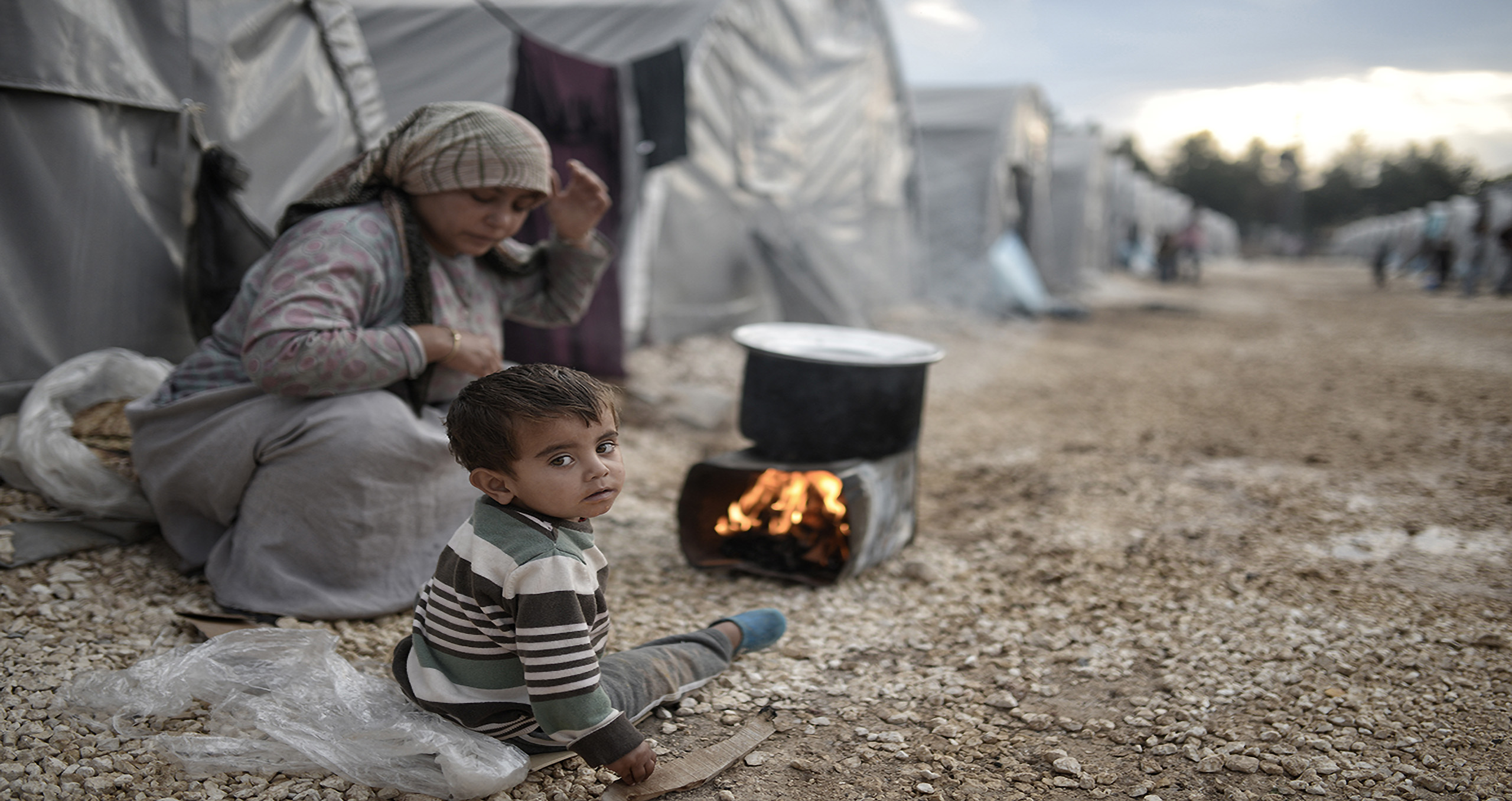Syrian refugees in Turkey

Syrian refugee family who came from Kobani district living in refugees tent in Suruc district, Sanliurfa, Turkey. Photographer: Orlok (Shutterstock, 2015).
Why did Europe refuse to adopt more Syrian refugees?
Turkey is known as one of the countries in the world that hosts the most refugees. According to the United Nations High Commissioner for Refugees (UNHCR), Turkey hosts approximately 3.6 million Syrian refugees which constitutes a real financial burden on the Turkish economy (Jauhiainen, 2018). Besides that, Turkey claims the spending of around $40 billion on refugees during the last few years (Sonmez, 2019). However, that number has not been confirmed yet by the United Nations. The reasons that pushed the Turkish party of Justice and Development (AKP) to host that big number are diverse, but the impact of the hosting policy was unexpected. Unemployment rates increased dramatically among the Turkish youth. In return, hate crimes against Syrian refugees became more evident despite the governmental measures to limit such deeds (Duran, 2019). As a result, the ruling party of AKP lost the local election in Istanbul for the Republican People’s Party (CHP), which is designated as an anti-refugee party. Later, the Turkish government adopted strict measures against the Syrian refugees and started a process of forced deportation into the liberated lands in Syria. In June 2019, approximately 300,000 Syrian refugees were forcibly sent back to Syria (Long, 2019). Despite the Turkish pressures, Europe always refused to host more refugees and offered a financial contribution to assist Turkey in handling the pressure exerted by the Syrian refugees on the Turkish economy. According to a deal signed in 2015, Europe was expected to pay Turkey €6 billion in return for the Turkish control to the crossing of refugees into the Greek islands (Weber, 2017). In fact, that deal helped Europe to curb the flow of refugees (Weber, 2017). Europe has many reasons that might justify its unwillingness to host an excessive amount of refugees. First, Europe will be unable to handle any additional pressure on its local economies in the Post-Coronavirus era. Second, Eurosceptic parties perceive refugees and migrants as a threat to their national culture because refugees may not be able to integrate in the European society (Gozdziak, 2020). Third, there is no clear plan adopted by the UN or the European Union (EU) to send refugees back home when the war is over. Fourth, hosting refugees pushed the popularity of Eurosceptic parties to increase dramatically, which poses a serious threat to the unity of the union, e.g. the league Nord, a Eurosceptic party in Italy, came first in the European election in 2019 with 34.33% of votes (Amaro, 2019). As the Syrian refugee crisis is expected to last many years, Europe must plan outside the box and adopt non-traditional policies. Those policies must include a more vital European role in ending the war in Syria. Besides that, Europe must keep adopting strict measures against the Al-Assad regime which was sanctioned by the EU for its horrible crimes against civilians in Syria. Also, the EU must push for a political settlement in Syria where Al-Assad shall not be a part of (Yahya & Kassir, 2017). Only a democratic country, where the rights of citizens are protected, can persuade the Syrian refugees to return willingly to their original homes. At the end, countries recognized as a passage to Europe, like North African countries, should be supported through special deals to confront illegal migration (Al Zaidy, 2019).

Article by
Ahmed Sami Abdelfattah Abouyoussef

Categories
Asia, Categories, Countries, Europe, Human rights, Refugees, Turkey, Turkey



Nice job. Well structured, logical and convincing.